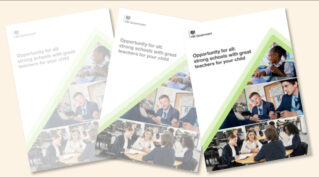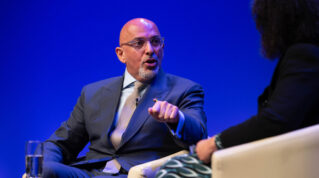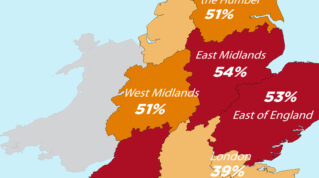The wait and anticipation is finally over. The government has published its schools white paper and the Easter break will give us the chance to reflect on how its proposed reforms can be a catalyst for change. We welcome the themes of targeting support for every child who needs it, a stronger and fairer system and delivering high standards of curriculum, behaviour and attendance. Sadly however, our early response, like many stakeholders, is a sense of missed opportunity. The paper, lacking detail for many of its key propositions, is light on ambition and substance and under-powered in terms of funding commitments.
This is the first schools white paper in six years. It arrives on the back of a pandemic that has had (and is still having) a brutal impact on our children and young people as well as over a decade of austerity. And unfortunately, it falls short on tackling the connected issues of child poverty, health and social inequalities that prevent many from succeeding. Furthermore, there is an absence of a vision for children who need additional support, for example those in care. The white paper instead defers to the independent review of children’s social care, and even this week’s green paper makes no mention of them, and only one reference to virtual schools.
The pandemic showed clearly how crucial councils are in our children’s education. Coventry has an excellent track record in providing a high-quality education for pupils, with over 90 per cent of pupils attending a good or outstanding school, rising to 94 per cent in the maintained sector. And the white paper does mirror the vision of the Coventry Education Partnership: placing children at the heart of everything we do, and ensuring collective moral responsibility and accountability for all of them.
Our partnership includes all of our schools and further education colleges and has a strong record of delivering improved outcomes for children and young people. The trajectory of improvement has been significant and sustained, rising from 58 per cent of pupils attending good or outstanding schools in 2013 to the levels we see today. All schools can draw on school-to-school support from any source, brokered by the local authority or directly with partner schools through our collaborative school improvement model. Our role as a city council is fundamental to the success of this endeavour.
There is no competition between our schools, just healthy support and challenge
So while we may disagree with the thrust to force academisation on all schools, we welcome the proposal that LA-led MATs will receive government support, and we will continue to work in partnership with strong local MATs. The proposed new collaborative standard requiring MATs to work constructively with other partners is something we already adopt. However, we are concerned that the legislative framework will remove school improvement responsibilities from councils, instead conducting partnerships through a statutory duty to cooperate.
The education landscape has expanded to include different types of state-funded schools, and in Coventry the differences have not hindered progress and collaboration. Maintained, academy, free schools and FE providers all work together to achieve our common purpose of building and sustaining an educational offer that protects, nurtures, cares and educates children and young people to give them the best life chances we can. There is no competition between our schools, just a healthy relationship of support and challenge. Coventry City Council sits as an enabler and facilitator of a strong and diverse school system, recognising that the mortar is as important as the bricks.
As the government’s focus turns to delivery and implementation, we believe that they will need to look carefully at the approach councils such as ours are taking. From an organisational perspective, the partnership ensures we already meet these statutory responsibilities and make efficient use of the public purse.
We therefore urge the DfE to exercise flexibility by ensuring that investment is purposeful, has a clear impact, improves outcomes, and delivers value for money – and that reforms don’t unnecessarily hinder the outstanding work that is already being done to deliver high-quality education with improved life chances for children.

















Your thoughts